|
FOR IMMEDIATE RELEASE MEDIA CONTACTS
Inter-American Institute for Global Change Research Kim Portness [email protected] Journal of Science Policy & Governance André Porter [email protected] WASHINGTON, DC (September 19, 2022) - The Journal of Science Policy & Governance (JSPG) and the Inter-American Institute for Global Change Research (IAI) are pleased to announce a call for papers and competition to provide nations of the Americas with tools and institutional capacities to better face Global Environmental Change (GEC) challenges. This call for papers is focused on international collaboration and the exchange of scientific information and knowledge relevant to Development Policy and Global Change Science to Achieve the Vision of Sustainable Americas. Students, post-doctoral researchers, policy fellows, early career researchers and young professionals from around the world are invited to submit policy briefs, policy analyses and position papers, technology assessments and other articles addressing bold and innovative policy and diplomacy ideas for tackling complex societal problems around GEC that have become increasingly transboundary in nature. Submission deadline: January 22, 2023. This Special Issue is supported in-kind by outreach partners from the Belmont Forum and SRI Congress. “The traditional governance framework for science to policy is under tremendous strain. There are over 900 multilateral and over 1500 bilateral treaties and other international agreements dealing with environmental issues. This fragmentation creates conflicting decisions under different multilateral instruments, duplication of efforts and competition for limited funds. In the face of urgent global change issues we need to invest more in collaboration and synergies,” said Marcos Regis da Silva, Executive Director for the Inter-American Institute for Global Change Research (IAI). “The transdisciplinary approach outlined in the agreement that created the IAI 30 years ago is revolutionary. A regional approach is needed to meet the challenges of complex multinational problems and build systems and institutions that encourage scientific excellence, open data, and the true, equitable, and inclusive participation of all stakeholders in the co-production of knowledge. The next generation of science and policy leaders have new ideas and need an Inter-American platform to amplify their voices and cultivate skills to support effective regional solutions.” Challenges posed by GEC are complex and require a transdisciplinary approach which involves the co-design and co-production of research with a diverse coalition of stakeholders including scientists, government decision-makers and civil society actors working together towards sustainable solutions. This includes working at the science policy and diplomacy interface, as many of these challenges are transboundary, regional or global, and require partnerships within and between countries, as no single nation has the capabilities nor the resources to solve these global problems alone. “Solving Global Environmental Change (GEC) challenges requires a full and open exchange of scientific information, and necessitates a multistakeholder community dedicated to addressing these issues,” said Adriana Bankston, JSPG CEO and Managing Publisher. “JSPG is thrilled to partner with the Inter-American Institute for Global Change Research (IAI) on this call for papers to showcase early career voices in addressing global science policy and diplomacy challenges, and to continue expanding the journal’s reach across the Americas.” Accepted articles will be entered into a policy paper competition, where a committee of experts in the science policy-diplomacy interface of global environmental change will select the top three articles. First, second and third place article winners will have the opportunity to present published work at the Sustainability Research and Innovation Congress in Republic of Panama in June 2023. Leading up to the submission deadline, JSPG and IAI will organize a series of training sessions to provide prospective authors with opportunities to practice policy writing, and to inspire and empower them with expert perspectives on science-policy communication to inform their submissions to the Special Issue. ### About JSPG
The Journal of Science Policy & Governance (JSPG) is an international, open access peer-reviewed publication managed by and for students, policy fellows, and young scholars in science, technology, and innovation policy. JSPG publishes high-quality articles covering the widest range of topics in formats that are accessible to policymakers. Since 2011, JSPG has served as a vehicle for students and early career researchers to bolster their research and writing credentials in science policy. Visit sciencepolicyjournal.org and follow on Twitter @SciPolJournal to learn more. About IAI The Inter-American Institute for Global Change Research (IAI), an intergovernmental organization with 19 Parties in the Americas, promotes transdisciplinary research and the enhancement of capacities to improve public awareness and provide information to governments for the development of public policy relevant to global environmental change, based on scientific excellence, international and intersectoral cooperation, and the open exchange of knowledge. Visit https://www.iai.int/ and follow on Twitter @IAI_news to learn more. About the Belmont Forum Established in 2009, the Belmont Forum is a partnership of funding organizations, international science councils, and regional consortia committed to the advancement of transdisciplinary, societally relevant, research. Forum operations are guided by the Belmont Challenge, a vision document that encourages international transdisciplinary research providing knowledge for understanding, mitigating and adapting to global environmental change. Forum members and partner organizations work collaboratively to meet this Challenge by issuing international calls for proposals, committing to best practices for open data access, and providing transdisciplinary training. Since its establishment, the Forum has successfully led 19 calls for proposals, supporting 134 projects and more than 1,000 scientists and stakeholders, representing over 90 countries. Visit https://www.belmontforum.org/ and follow on Twitter @Belmont_Forum to learn more. About SRI The Sustainability Research & Innovation Congress (SRI) is a transdisciplinary gathering in sustainability – a space of dynamic advocacy for sustainability scholarship, innovation, collaboration, and action. A collaboration of the Belmont Forum and Future Earth, SRI is a unique opportunity for diverse audiences to connect with the global sustainability community, learn and contribute to the latest sustainability science, create novel networks and partnerships, explore new ideas, gain visibility, inspire, and be inspired. SRI2023 will be co-hosted by the Secretaría Nacional de Ciencia, Tecnología e Inovación (SENACYT) and the IAI in Panama City, Panama. Visit sricongress.org and follow on Twitter @SRICongress to learn more. Media Contacts
Inter-American Institute for Global Change Research |
| Read the call for papers on the UNESCO open science page, which highlights Open Science as a critical accelerator for the achievement of the United Nations Sustainable Development Goals and a true game changer in bridging the science, technology and innovation gaps and fulfilling the human right to science. |
The Journal of Science Policy & Governance (JSPG) is an international, open access peer-reviewed publication managed by and for students, policy fellows, and young scholars in science, technology, and innovation policy. JSPG publishes high-quality articles covering the widest range of topics in formats that are accessible to policymakers. Since 2011, JSPG has served as a vehicle for students and early career researchers to bolster their research and writing credentials in science policy. Visit sciencepolicyjournal.org and follow on Twitter @SciPolJournal to learn more.
Awards in this category are made to practitioners and scholars who demonstrate great promise through their early research impact leadership efforts. In the selection notice, ARIS recognized Bankston for her work in affecting science policy and advocacy, and the importance of this work for the future of the STEM workforce.
“Most remarkable was the amount of impact that Adriana has had so early in her career. The awards committee was impressed by Adriana’s work and is excited to recognize her with the inaugural award in this category,” said Susan Renoe, PhD, Associate Vice Chancellor for Research, Extension & Engagement at the University of Missouri and Executive Director of ARIS. “We are excited to see what else Adriana will accomplish in her career.”
ARIS Awards recognize researchers and practitioners undertaking exemplary work in the societal impact of research and higher education. Awardees were honored during the 2022 virtual ARIS Broader Impacts Summit. Learn more about this year’s awardees here.
The Journal of Science Policy & Governance is an internationally recognized, open-access peer-reviewed publication dedicated to elevating students, post-docs, policy fellows and young scholars in science, technology and innovation policy and governance debate worldwide. JSPG publishes high-quality articles covering the widest range of topics in formats that are accessible to policymakers. Since 2011, JSPG has served as a vehicle for students and early career researchers to bolster their research and writing credentials in science policy. Visit sciencepolicyjournal.org and follow on Twitter @SciPolJournal to learn more.
JSPG AND SIGMA XI RELEASE SPECIAL TOPICS ISSUE ON STEM EDUCATION AND WORKFORCE DEVELOPMENT
5/16/2022
Jason Papagan
[email protected]
(919) 518-7820
Journal of Science Policy & Governance
André Porter
[email protected]
(202) 730-9502
In the 9 published articles, authors in this special topics issue of JSPG highlight challenges and solutions to issues related to diversity, equity and inclusion in STEM education, touch upon civic science as a means for scientists to engage more broadly in society, and challenge assumptions on the STEM workforce through novel entry points and empowerment of workers in the field.
“The COVID-19 pandemic has exposed numerous deficiencies in U.S. STEM education and workforce development systems,” said Jamie Vernon, Executive Director and CEO of Sigma Xi. “The innovative early career authors featured in this issue have identified systemic changes that could improve educational and workforce development outcomes for future generations, and their published work has the potential to greatly improve the landscape of the field for all.”
The Special Topics Issue competition, judged by an external review committee, provided winning authors of the top 3 publications with opportunities to receive monetary awards, present their published papers at future Sigma Xi events, including the International Forum on Research Excellence (IFoRE), and submit a piece to Sigma Xi’s award-winning publication, American Scientist. The magazine submission opportunities for authors are still to come and will be announced at a later date.
The winners of the JSPG & Sigma Xi competition for the Special Topics Issue are as follows:
- First place: Ensuring the Inclusion of People with Disabilities in STEM Education and Careers (Wisberty J. Gordián-Vélez)
- Second place: To Strengthen the American STEM Workforce, Empower Workers (Justin Lee and Carolyn Amir)
- Third place: Family Support Policy for Pharmacy, Medical, and Graduate Students (Lora L Daskalska, Benjamin S O’Brien, Thiago Arzua and Brianne K Bakken)
We thank competition reviewers for their efforts and greatly appreciate their input towards selecting the winners: Greer Arthur (NC Policy Collaboratory); Allison Augustus-Wallace (Louisiana State University Health Sciences Center); Laura Bartock (Association of Science and Technology Centers); Ariana Eily (Initiative for Science and Society, Duke University); Matthew Garcia (Strategic Policy Consulting in Economic and Workforce Development); Andrew George (Sigma Xi); Tammy Long (Michigan State University); Barbara J. Natalizio (pd|hub); Mary Lou O’Donnell (Department of Energy, Office of Science); Jylana Sheats (Science & Society Program, Aspen Institute) and Jeff Toney (Department of Philosophy and Linguistics, MIT).
“Through this Special Topics Issue, JSPG is proud to partner with Sigma Xi to offer the next generation the opportunity to bring their innovative ideas to light, to create systemic change and to disseminate their published work on STEM education and workforce development towards a better future for all,” said Adriana Bankston, JSPG’s CEO and Managing Publisher.
We would also like to thank educational partners for their support on this Special Topics Issue and associated events: Thomas Tubon (BIOMade), Shalin Jyotishi (New America) and Toby Smith (Association of American Universities).
This issue is supported in-kind by outreach partners from the STEM Education Coalition, Albert Einstein Distinguished Educator Fellowship Program, MSI STEM Research & Development Consortium, Duke Science & Society and Science is US.
The Journal of Science Policy & Governance is an internationally recognized, open-access peer-reviewed publication dedicated to elevating students, post-docs, policy fellows and young scholars in science, technology and innovation policy and governance debate worldwide. JSPG publishes high-quality articles covering the widest range of topics in formats that are accessible to policymakers. Since 2011, JSPG has served as a vehicle for students and early career researchers to bolster their research and writing credentials in science policy. Visit sciencepolicyjournal.org and follow on Twitter @SciPolJournal to learn more.
About Sigma Xi
Sigma Xi, The Scientific Research Honor Society, founded in 1886, is the world’s largest multidisciplinary honor society exclusively for scientists and engineers. The Society’s mission is to enhance the health of the research enterprise, foster integrity in science and engineering, and promote the public understanding of science for the purpose of improving the human condition. Over 500 Sigma Xi chapters can be found wherever scientific research is undertaken at colleges, universities, government laboratories, and industry research centers worldwide. Among our 100,000 inductees, more than 200 are Nobel Prize winners. The Society is based in the Research Triangle Park, North Carolina. Visit https://www.sigmaxi.org/ and follow on Twitter @SigmaXiSociety to learn more.
About STEM Education Coalition
The STEM Education Coalition’s mission is to raise awareness amongst policymakers at every level about the critical role that science, technology, engineering, and mathematics (STEM) education plays in enabling the U.S. to remain the economic and technological leader of the global marketplace of the 21st century. The Coalition believes that our nation must improve the way our students learn STEM and that the business, education, and STEM communities must work together to achieve this goal. Visit http://www.stemedcoalition.org/ and follow on Twitter @StemEdCoalition to learn more.
About the Albert Einstein Distinguished Educator Fellowship Program
The Albert Einstein Distinguished Educator Fellowship (AEF) Program provides a unique opportunity for accomplished K-12 educators in the fields of science, technology, engineering, and mathematics (STEM) to serve in the national education arena. Fellows spend eleven months working in Federal agencies or in U.S. Congressional offices, applying their extensive knowledge and classroom experiences to national education program and/or education policy efforts. At the end of the Fellowship, educators are equipped with access to a national network of education leaders and programs, a better understanding of the challenges and possibilities in STEM education, and a renewed passion for teaching, ready to make significant contributions to the educational community. Visit https://science.osti.gov/wdts/einstein and follow on Twitter @EinsteinFellows to learn more.
About MSI STEM Research & Development Consortium
The MSI STEM Research & Development Consortium (MSRDC) is a solutions provider, research development partner and strategic asset to more than 60 minority-serving research institutions, industry and government partners. Our members use a combination of basic, applied, and/or advanced technology development research to pioneer groundbreaking solutions. We help the United States maintain a competitive technological advantage, both at home and abroad through a combination of research, collective expertise and a collaborative platform that drives innovation forward. Visit https://www.msrdconsortium.org/ and follow on Twitter @MSRDConsortium to learn more.
About Duke Science & Society
The Duke Initiative for Science & Society (“Science & Society”): fosters research, education, communication, democratic deliberation, and policy engagement on the ethical progress of science and technology in society. Science & Society takes an interdisciplinary approach, with a focus on applied ethics and policy, to advance the responsible use of science and technology for humanity. Visit https://scienceandsociety.duke.edu/ and follow on Twitter @DukeSci_Soc to learn more.
About Science is US
Science is US is a foundation-supported effort that brings together a diverse group of science, engineering, industry, higher education and labor organizations to galvanize a broad, bipartisan political base of support for science and technology. Visit https://scienceisus.org/ and follow on Twitter @Science_Is_US to learn more.
André Porter
[email protected]
(202) 730-9502
In the selection notice, Women We Admire acknowledged Bankston for her career track record and current leadership position. To learn more about this honor, click here. Bankston also recently celebrated her 1-year anniversary as CEO of JSPG earlier this month. To read more about her reflections on leadership, click here.
“Adriana’s strong leadership of the Journal of Science Policy & Governance and her rising profile in the science policy community make her an excellent choice for the Women We Admire Top 50 recognition,” said Erin Heath, Director of Federal Relations at the American Association for the Advancement of Science and Chair of the JSPG Governing Board. "The JSPG Governing Board congratulates Adriana on this well-deserved honor.”
Adriana Bankston's full awardee profile, as published by Women We Admire, is copied below.
| 37. Adriana Bankston Principal Legislative Analyst, University of California Office of Federal Government Relations Adriana Bankston is a Principal Legislative Analyst at the University of California Office of Federal Governmental Relations in Washington, DC, where she serves as an advocate for the university with Congress, the Administration, and federal agencies. Prior to this position, Bankston was a Policy & Advocacy Fellow at the Society for Neuroscience, where she provided staff support for special and on-going projects, including the society’s annual lobby event and the annual meeting. In addition to working at UC, Bankston is the Chief Executive Officer & Managing Publisher of the Journal of Science Policy & Governance, a Fellow with Advancing Research Impact in Society (ARIS), and a Biomedical Workforce & Policy Research Investigator at the STEM Advocacy Institute. Bankston also is a member of the Engaging Scientists and Engineers in Policy (ESEP) Coalition Steering Committee. Bankston earned her PhD in biochemistry, cell, and developmental biology from Emory University. |
The Journal of Science Policy & Governance is an internationally recognized, open-access peer-reviewed publication dedicated to elevating students, post-docs, policy fellows and young scholars in science, technology and innovation policy and governance debate worldwide. JSPG publishes high-quality articles covering the widest range of topics in formats that are accessible to policymakers. Since 2011, JSPG has served as a vehicle for students and early career researchers to bolster their research and writing credentials in science policy. Visit sciencepolicyjournal.org and follow on Twitter @SciPolJournal to learn more.
Whitney Gray
[email protected]
(+41) 22 908 4544
Journal of Science Policy & Governance
André Porter
[email protected]
(202) 730-9502
"Working alongside youth in co-creating futures that improve the health and wellbeing of the next generation is a central tenet of The Lancet and Financial Times Commission report on Governing health futures 2030: Growing up in a digital world (GHFutures2030). We are eager to see how this partnership with JSPG develops into a Special Issue that can provide space for young people to improve their research, writing, and policy publishing in the field of digital transformations in health," said Dr. Anurag Agrawal and Prof. Ilona Kickbusch, co-chairs of the GHFutures2030 Commission.
In its October 2021 report, The Lancet and Financial Times Commission argued that governance of digital transformations must be grounded in 'Health For All' values and focused on harnessing data and digital technologies to tackle global health challenges and improve equitable health outcomes. For children and young people to truly have agency with respect to digital technologies and approaches for which they are the intended end-users or beneficiaries, they need to be enfranchised and empowered to participate – beyond just being loosely engaged – in every step of the way from research to implementation.
"Early career voices are critical to the future of our society, in particular as it relates to designing global health systems for the benefit of all. Through this Special Issue in partnership with the GHFutures2030 Commission, JSPG is thrilled to highlight and elevate innovative policy and governance approaches to future health systems from students and early career trainees around the world. We look forward to publishing bold ideas from the next generation at the convergence of digital health, artificial intelligence, and universal health coverage for children and young people worldwide,” said Dr. Adriana Bankston, JSPG CEO and Managing Publisher.
Accepted articles will be entered into a policy paper competition following peer review. A committee of experts in digital health policies, including the GHFutures2030 Commissioners and Secretariat members, will select the top three winning articles. First, second and third place article winners will have the opportunity to present at a global digital health event in 2023 and be interviewed on GHFutures2030 Voices of Digital Health podcast.
Leading up to the submission deadline, JSPG and the GHFutures2030 Commission will organize a series of training sessions to provide prospective authors with opportunities to practice policy writing, and to inspire and empower them with expert perspectives on digital health policies to inform their submissions to the Special Issue.
About JSPG
The Journal of Science Policy & Governance (JSPG) is an international, open access peer-reviewed publication managed by and for students, policy fellows, and young scholars in science, technology, and innovation policy. JSPG publishes high-quality articles covering the widest range of topics in formats that are accessible to policymakers. Since 2011, JSPG has served as a vehicle for students and early career researchers to bolster their research and writing credentials in science policy. Visit sciencepolicyjournal.org and follow on Twitter @SciPolJournal to learn more.
About GHFutures2030 Commission
The Lancet and Financial Times Commission on Governing Health Futures 2030: Growing up in a digital world was established in October 2019 to deliver a clear set of recommendations on the governance of digital health, artificial intelligence, and universal health coverage. The Commission report was published in October 2021. It calls for a radical rethink on harnessing the power of digital technologies for our future health and sets out a new approach to digital transformations that promote equitable, affordable and universal improvements to health. The Commission is comprised of nineteen Commissioners representing a wide range of sectors, expertise, and backgrounds. The Commission is supported by the Secretariat which is hosted at the Global Health Centre of the Graduate Institute in Geneva, Switzerland. Visit governinghealthfutures2030.org and follow on Twitter @GHFutures2030 to learn more.
JSPG News
All the latest news from the Journal of Science Policy & Governance.
Follow JSPG on Twitter, Facebook, LinkedIn, Instagram, and YouTube.
Join our monthly newsletter.
Archives
April 2024
March 2024
October 2023
September 2023
July 2023
June 2023
April 2023
March 2023
January 2023
December 2022
October 2022
September 2022
August 2022
July 2022
June 2022
May 2022
April 2022
March 2022
February 2022
January 2022
November 2021
September 2021
August 2021
July 2021
June 2021
April 2021
January 2021
December 2020
October 2020
September 2020
August 2020
July 2020
June 2020
May 2020
April 2020
February 2020
December 2019
November 2019
September 2019
August 2019
April 2019
March 2019
February 2019
January 2019
November 2018
October 2018
September 2018
April 2018
February 2018
December 2017
Categories
All
Advisory-board
Ambassador
Ambassador Spotlight
Ambassador Spotlight Series
Announcement
Award
Blog
Climate
Diplomacy
Editor
Environment
Event
Fellow
Governing Board
JSPG10
News
Open Science
Partnership
Policy
Policy Memo Competition
Press Release
Special Issue
Sponsorship
Staff
Summer Standard Issue
Sustainable Development
Volume Release
Webinar
Winter Standard Issue



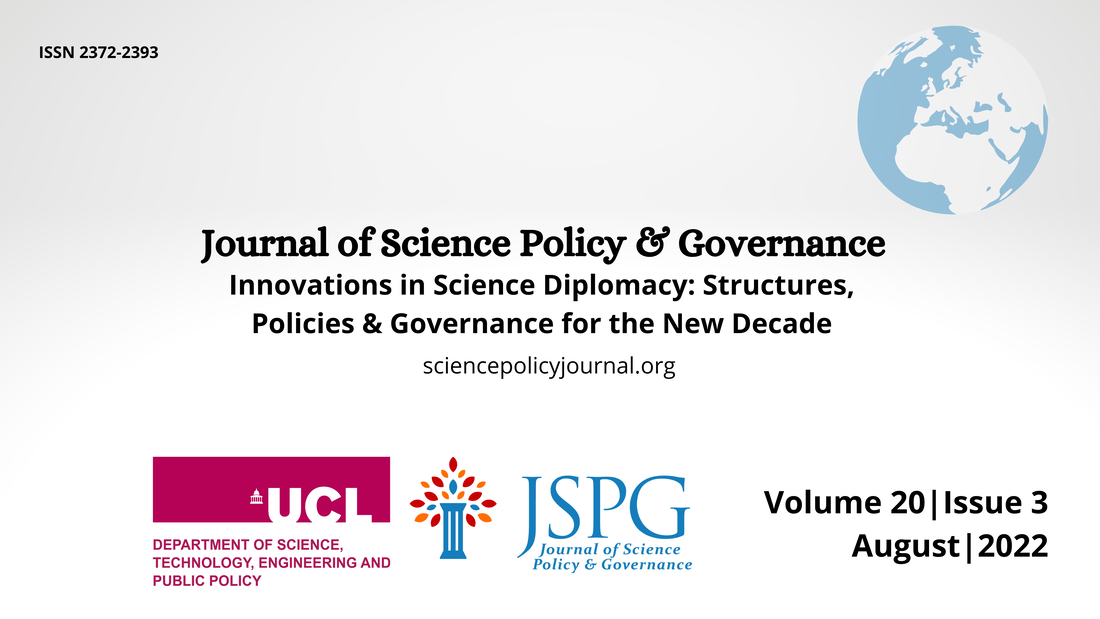
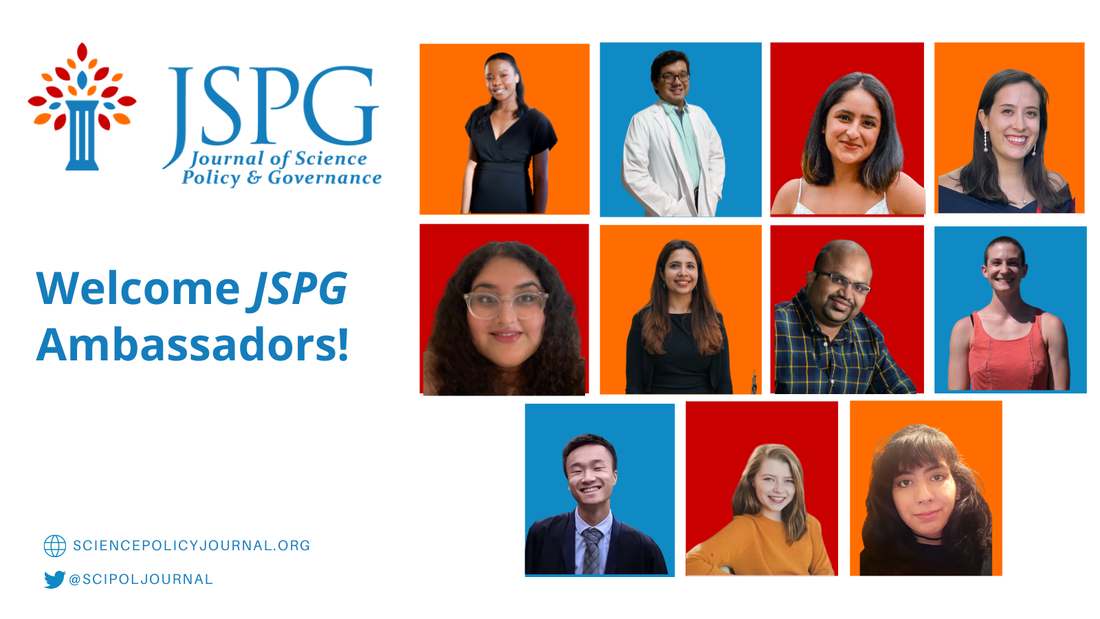
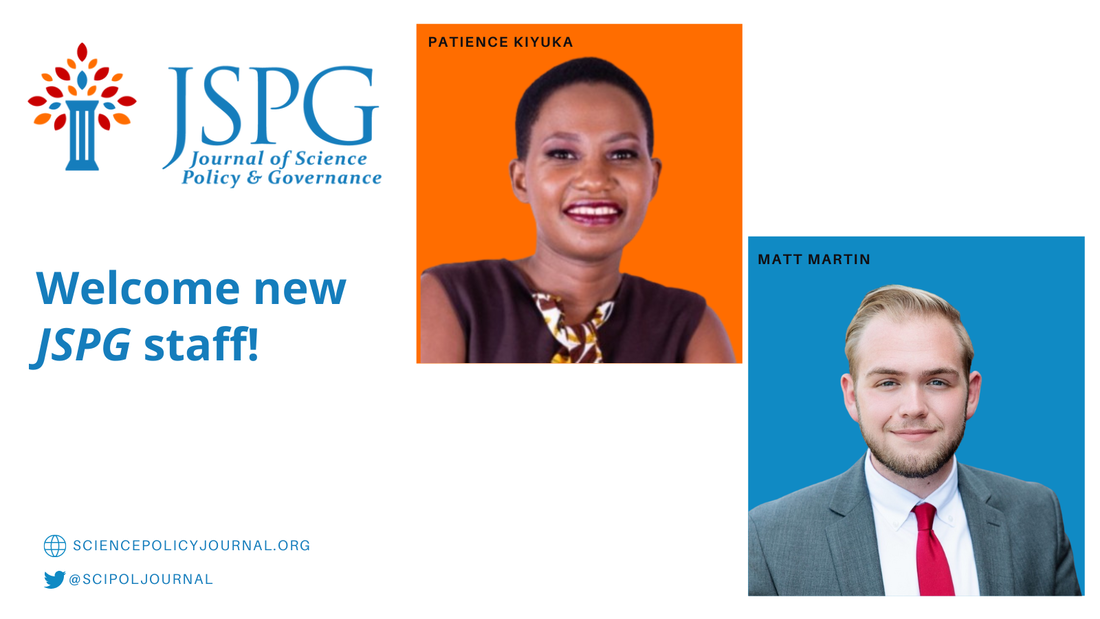
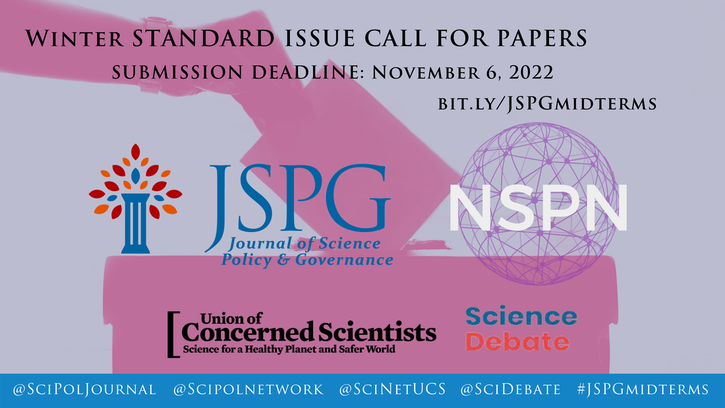
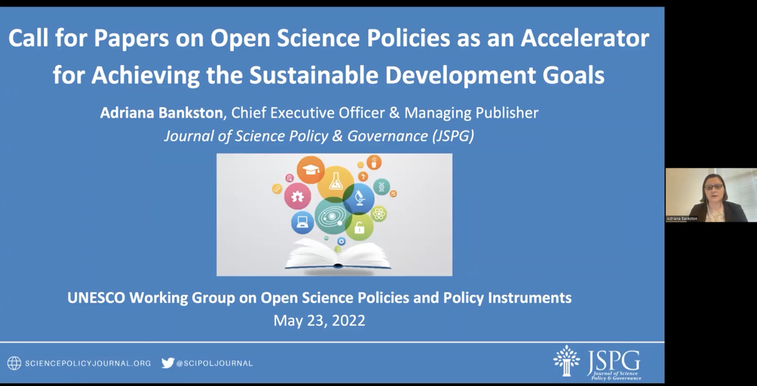
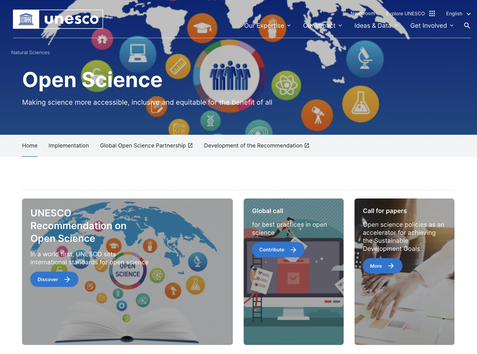
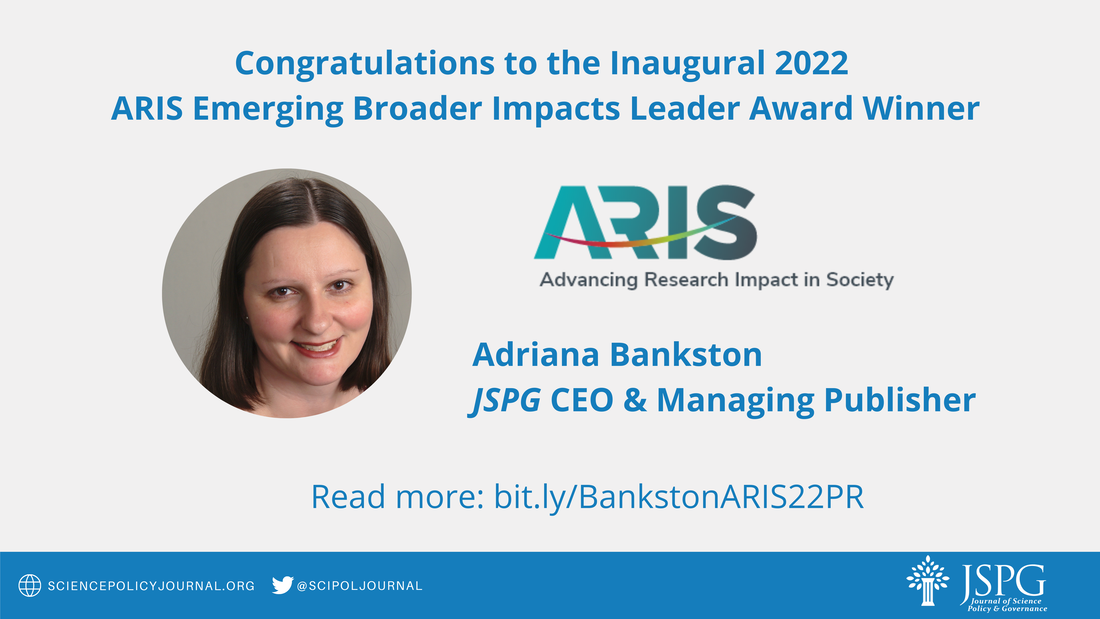
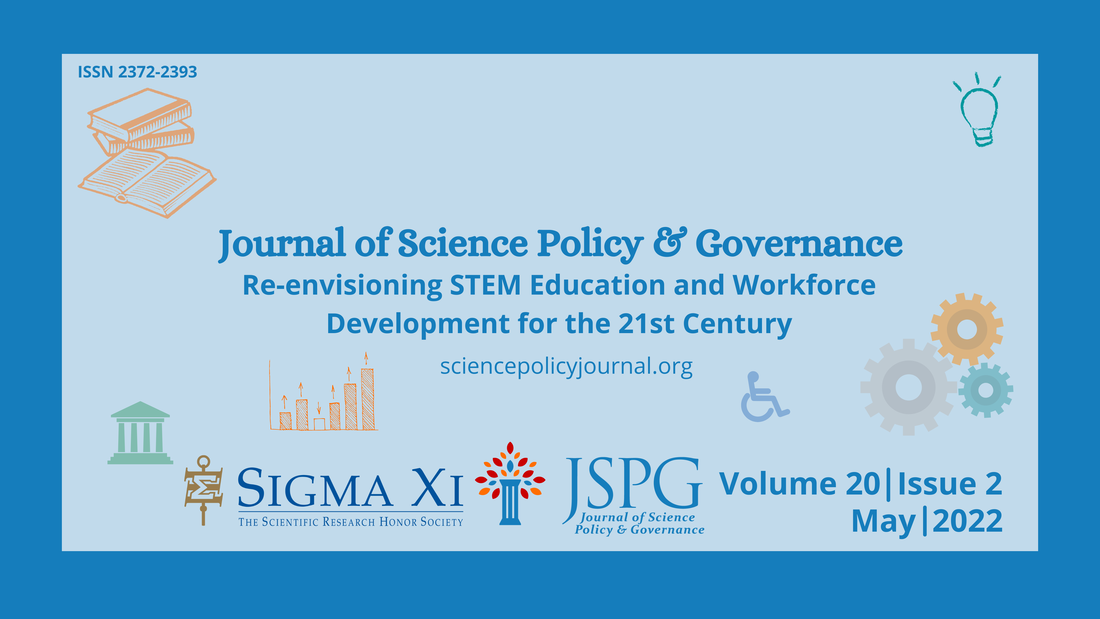
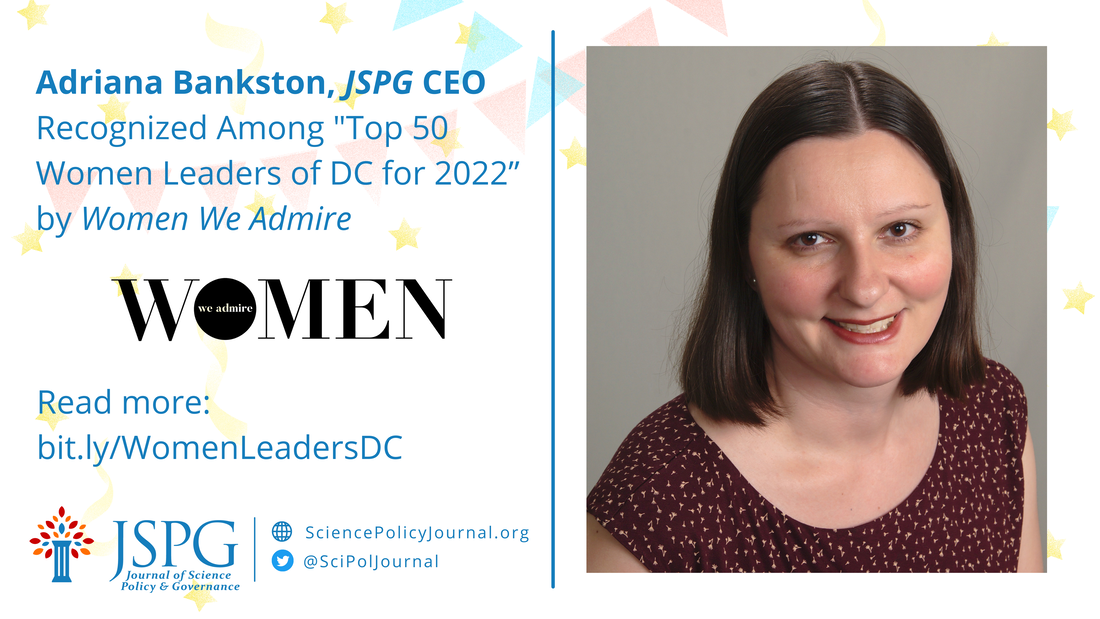

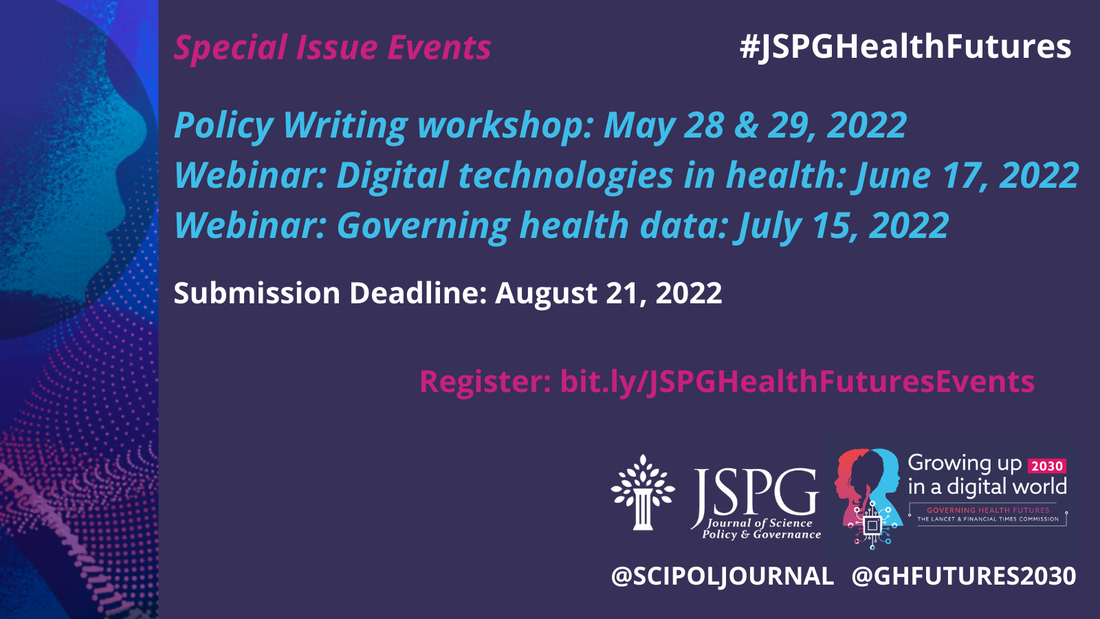
 RSS Feed
RSS Feed
